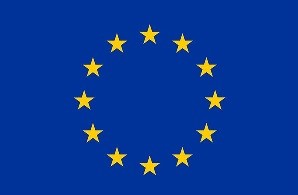ImplantSens
ImplantSens

Abstract
ImplantSens will develop long‐term stable implantable electrochemical biosensors by overcoming mass‐transport limited sensing schemes. This is the major unsolved problem due to the formation of capsules by the foreign body response upon implantation of a sensor. ImplantSens will not only contribute to the painless long‐term monitoring of glucose levels for diabetic patients but also to the development of future implantable sensors for the management of other chronic diseases. 11 ESR will be engaged in all tasks of this scientific chain, thus being trained in the fundamentals of bioelectrochemistry, enzyme engineering, electrode design as well as biocompatibility. Training of the fellows will be performed via an innovative program based on a blended learning concept and will take place at the host institutions, via secondments, workshops, schools and e-learning elements. The scientific training will be completed by training of complementary skill with respect to management, fund raising, IPR and scientific communication. The consortium consists of 7 leading scientists in Europe with the necessary expertise to target this ambitious goal supported by 4 SMEs. ImplantSens will improve the availability of a highly skilled workforce for European industries and research strongly needed for at the beginning of the 4th industrial revolution.
Consortium
Ruhr-Universitaet Bochum (Coordinator), Centre National De La Recherche Scientifique CNRS, Institut National De La Sante Et De La Recherche Medicale , Agencia Estatal Consejo Superior Deinvestigaciones Cientificas, National University of Ireland Galway, University of Limerick, University Of Southampton, Directsens GMBH, Eyown Technologies SL, Nanoflex LTD, Aptusens AB, Neuravi LTD, Universidad Autonoma De Madrid, Malmo Universitet, Universitaet Fuer Bodenkultur Wien, Universite de Bordeaux
For more information visit: ImplantSens
RenalToolBox
Abstract
The RenalToolBox ITN comprises a team of world-leading clinicians, scientists and industrialists from academia and private enterprise whose common goal is to develop innovative medical devices and imaging technologies to expedite the translation of cell-based regenerative medicine therapies (RMTs) to the clinic. The target disease for RenalToolBox is kidney disease, the incidence of which is increasing annually. The ITN provides an excellent framework for training 15 early stage researchers (ESRs) in a range of technological, entrepreneurial and transferable skills that will not only enhance their career prospects, but will also boost European scientific excellence and business innovation. By the end of the programme, the ESRs will have benefitted from a comprehensive multidisciplinary and multi-sectoral training experience that will equip them to expedite progress in the emerging supradisciplinary fields of biomedical devices, bio-imaging, cellular therapeutics and regenerative medicine. The research training objectives are as follows: 1. Train the young researchers in the development of diagnostic devices and novel tracers for monitoring renal function. 2. Apply cutting-edge imaging technologies to evaluate the safety and efficacy of novel cell-based RMTs in a rodent model of kidney disease. 3. Assess the safety and efficacy of different sources of mesenchymal stromal cells and explore the mechanisms whereby these cells can ameliorate kidney disease. This comprehensive training programme will endow the young researchers with the necessary scientific and industrial skills to ensure their employability and readiness to engage and lead the next European generation of scientists-entrepreneurs.
Consortium
The University Of Liverpool (Coordinator), Ruprecht-Karls-Universitaet Heidelberg, Cyanogen SRL, Universiteit Utrecht, Ithera Medical GMBH, Academisch Ziekenhuis Leiden, NUI Galway, NHS Blood And Transplant, Universita Degli Studi Di Torino, Nierstichting Nederland, Kidney Research UK, Katholieke Universiteit Leuven, University Of Malaya, Leica Microsystems CMS GmbH
For more information visit: RenalToolBox [https://renaltoolbox.org/]
